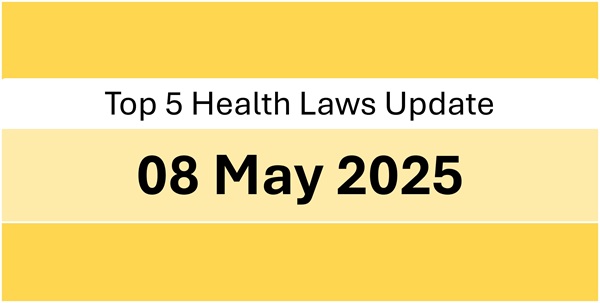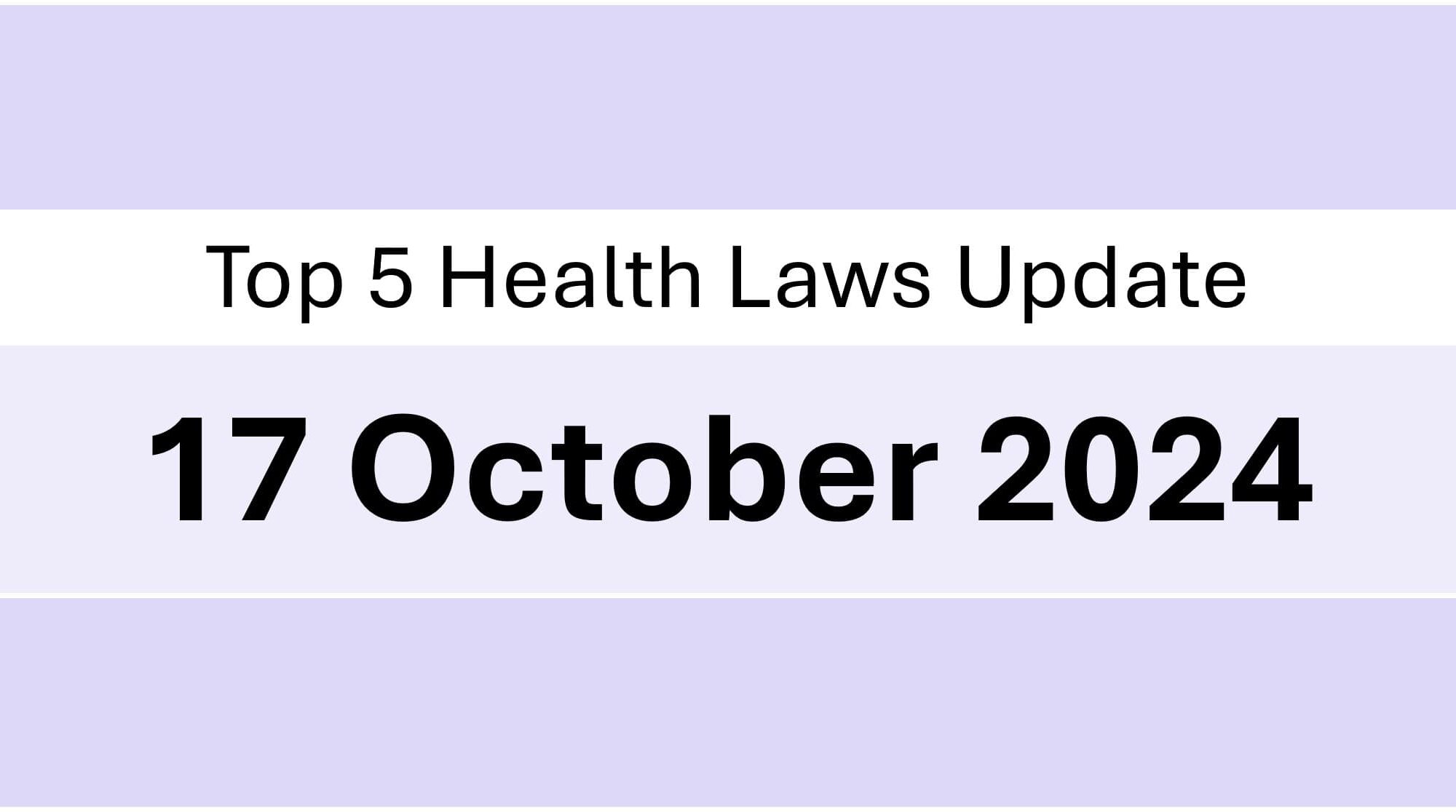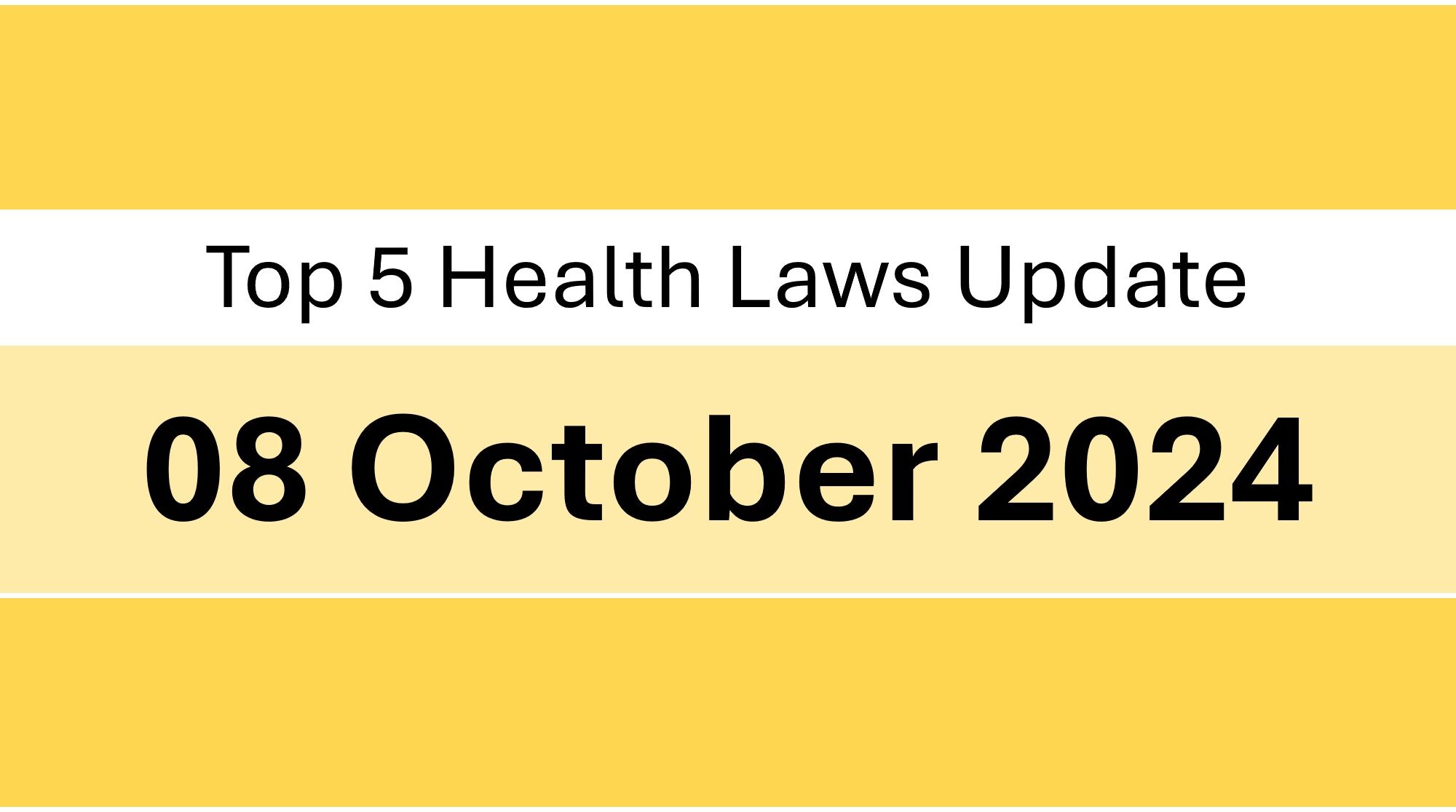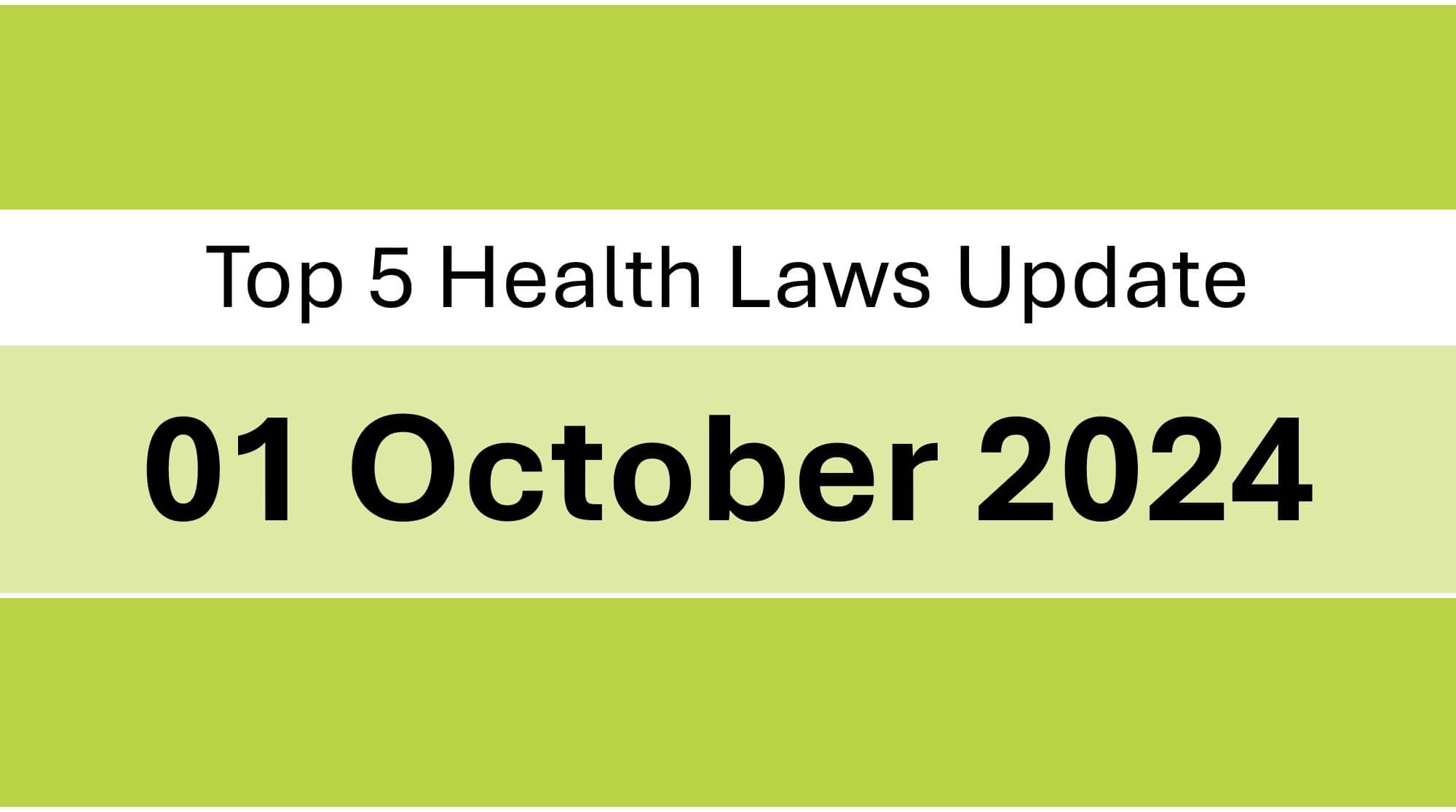Dear Readers, we are happy to share the most interesting legal and policy updates concerning health industry that we read today. we hope you enjoy reading it.
1. India’s Central Drug Regulator has issued guidance for obtaining NOCs to manufacture for export of approved/unapproved new drugs. It sets a 7-day timeline for NOC issuance, allows limited reuse of un-exported stock within specified residual shelf lives, and mandates quantity-specific NOCs for NDPS/banned drugs.
Source: bit.ly/4iQ5g4z
2. India’s Bombay High Court has issued notice to central drug regulator CDSCO’s response to a petition filed by a cancer research organization for rejection to initiate Phase I human trials of its homegrown cancer immunotherapy vaccine which has not been tested on animals.
Source: bit.ly/3ESEcUD
3. Patient groups, health organizations and patent experts in India have reportedly urged the Indian government to oppose TRIPS-plus provisions in Free Trade Agreements (FTA) with the US, UK, and EU, citing risks to affordable medicine access and self reliant domestic pharma industry.
Source: bit.ly/3EYEFEG
4. A Recent vaccine trial faced criticism after children were offered financial incentives to participate, raising ethical concerns. The promotional material, shared via messaging apps, was based on unapproved drafts. The UK’s Prescription Medicines Code of Practice Authority (PMCPA) found that ethical standards were not upheld, and no internal investigation was conducted by the sponsor.
Source: bit.ly/4iTpxGq
5. The European Medicines Agency (EMA) and the Heads of Medicines Agencies (HMA) has reportedly launched a strategic AI roadmap to enhance regulatory efficiency, data analysis, and decision-making, aligning with the EU AI Act and fostering innovation in pharmaceutical regulation.
Source: bit.ly/454woJZ




